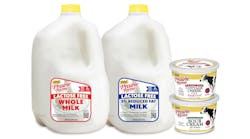What’s the best way to dispose of my used oil and other lubricants?
“Best” can be defined in many ways. The final decision should stem from what is the most efficient and safe method for your company. This can vary based on all the types of lubricants you deal with. There are really only two options available: hiring an outside company to handle disposal for you, or doing it yourself.
If you chose to hire outside help, when selecting a disposal partner ask the company to show documentation of an independent environmental audit on its sites and processes. It’s important to ensure the company is licensed to process used lubricants, and it’s beneficial to you as a company to conduct regular site visits to ensure the disposal process meets all applicable regulatory requirements.
If you’ll be handling it internally, then consider the entire team involved with managing the plant’s lubricants: the purchasing team (who buys them), the engineering team (who manages production and performance) and operations (who oversees maintenance). Getting buy-in from all participants can result in a more efficient disposal process. In addition, a well-defined procedure, proper storage equipment and labeling, and reinforcement of the appropriate policies can reduce the cost associated with handling of waste oil.
Keep in mind that the generating company (your organization) has ultimate responsibility – meaning if anything goes wrong with the process, you are still responsible. If you hire a service to take care of disposal for you, you’re still responsible, so research your partner carefully.
I’ve been thinking of trying to recycle some of my oil waste. What should I look for to create a viable and economical plan?
Like any sound business decision, there are numerous factors to consider when choosing the right oil recycler for your company. Some things to keep in mind include:
+ Check the company’s records to confirm it is a state-approved used oil handler.
+ A vendor must be registered as a transporter if it is collecting and transporting waste oil.
+ Request a certificate of insurance to make sure the company is properly covered in case anything happens.
+ Confirm the vendor has a responsible system for tracking waste streams it collects. If the vendor abuses the waste stream responsibilities, the end consequences will fall back to the originator of the waste (your company).
What are the benefits of recycling used oil?
Setting an example of good corporate stewardship by recycling an existing resource like oil is a smart long-term business decision. Besides the “feel good” aspect of minimizing waste and conserving a natural resource, companies recycling used oil can reduce long-term liability for disposed products and save money by cutting back on waste disposal costs so everyone can benefit.
What legalities should I be aware of when disposing or recycling my used oils? Is used oil characterized as hazardous waste?
One of the first things to determine is what your local and state laws require. The U.S. EPA has general regulations but the states have specific disposal requirements. Used oil is not considered a hazardous waste by the EPA and is not picked up as part of monthly hazardous waste pickups (however some exceptions apply, including vacuum pump oil, cutting oils and PCB-contaminated oil). However, the states of California, Massachusetts and Rhode Island do classify used oil as a hazardous waste and require specific handling for used oil.

